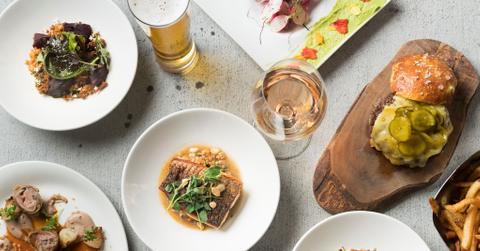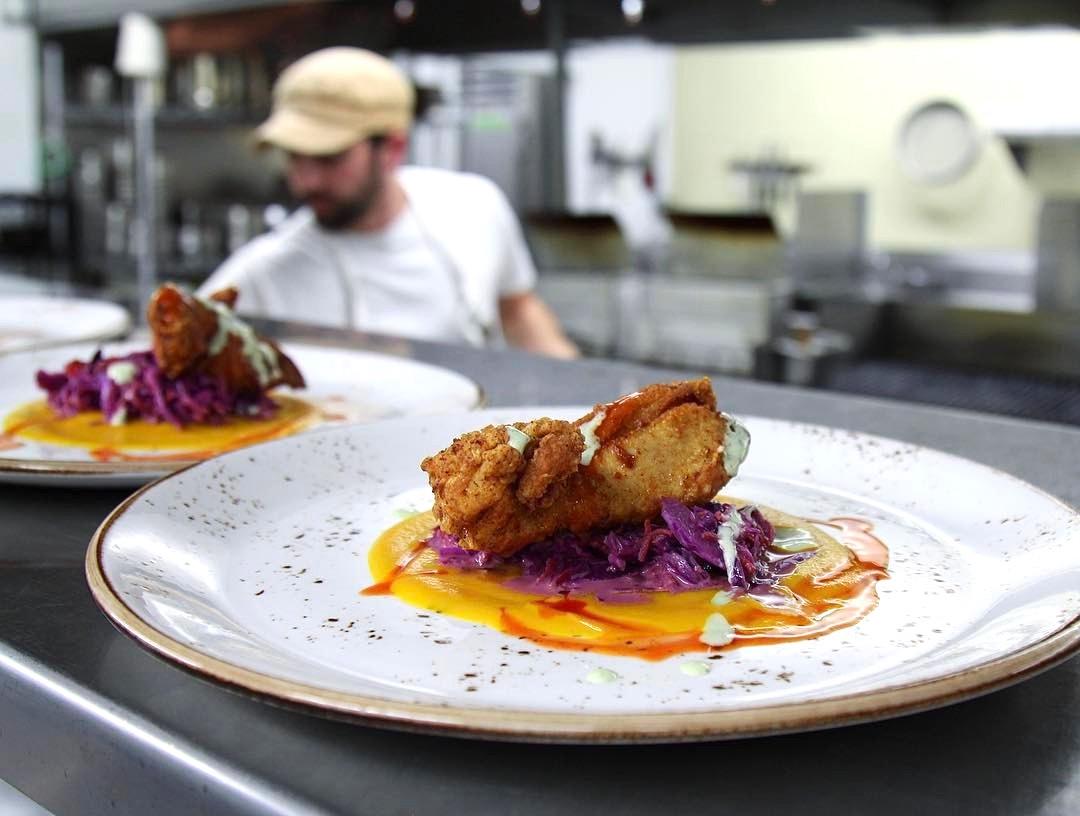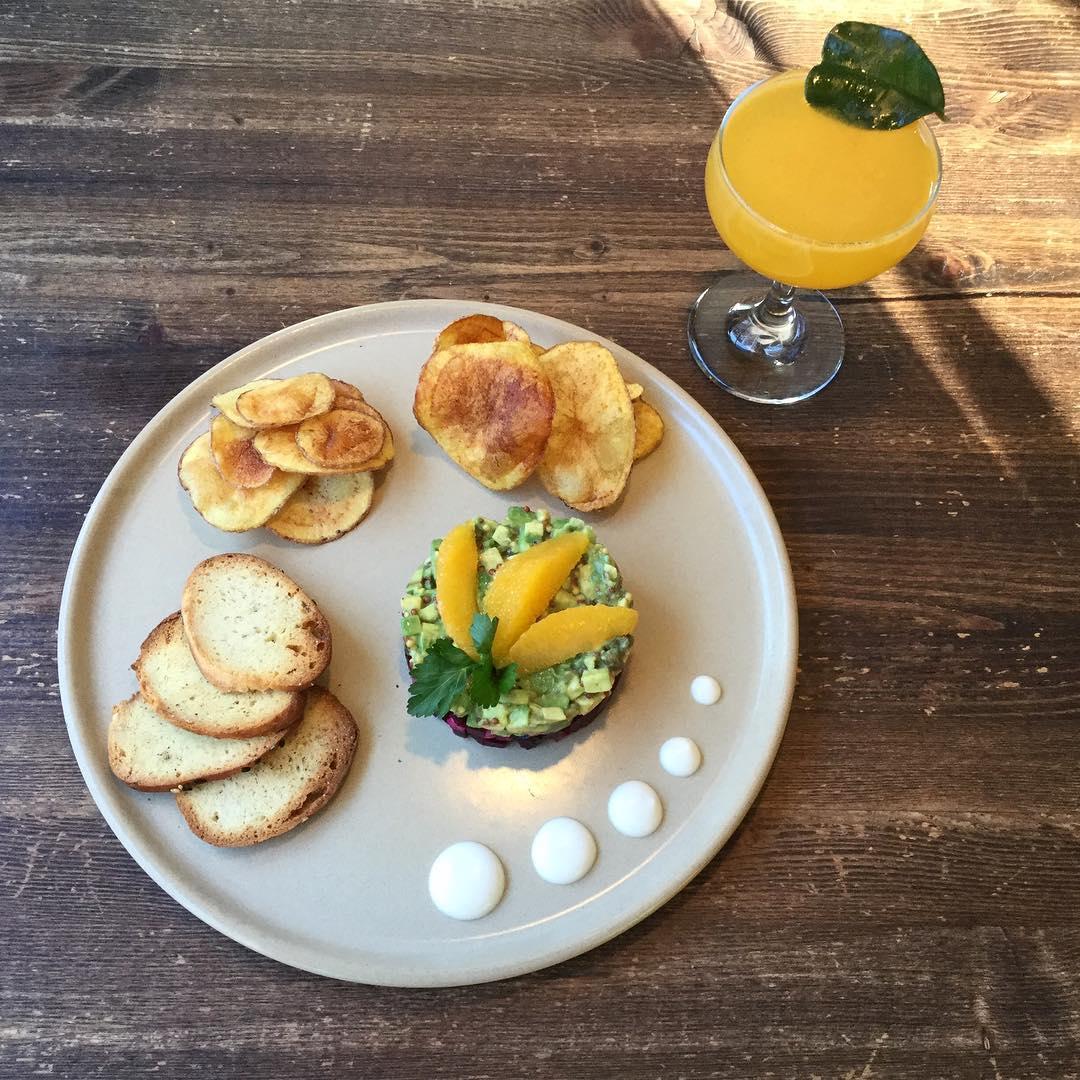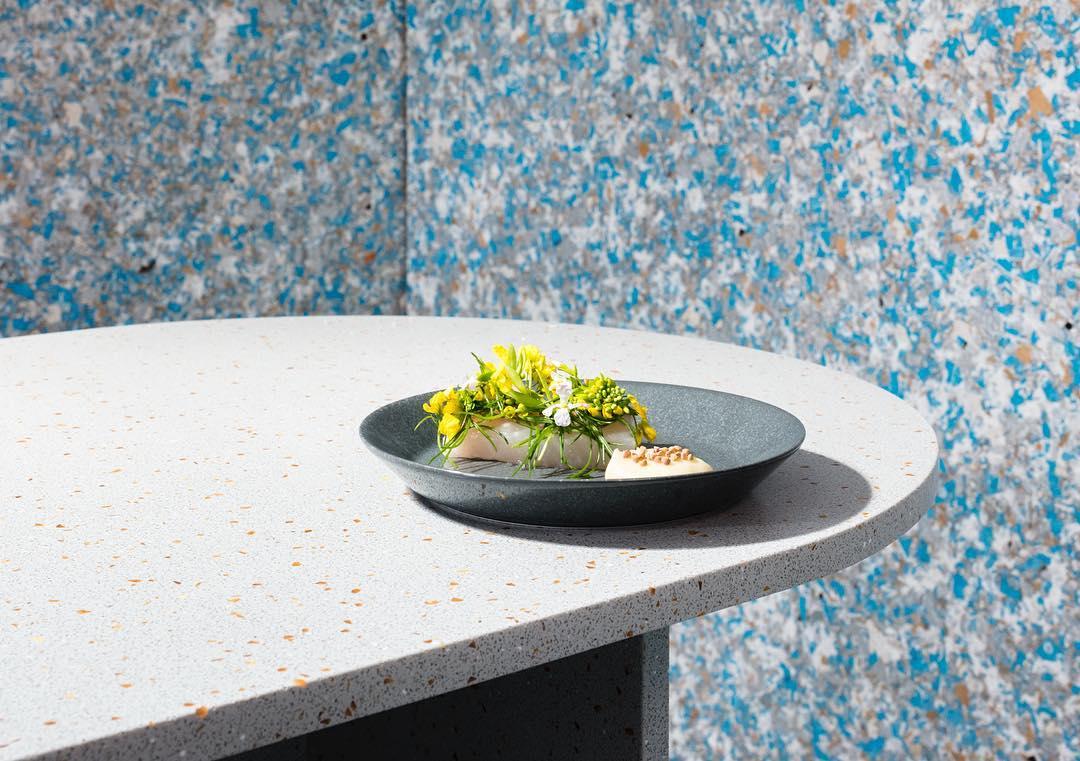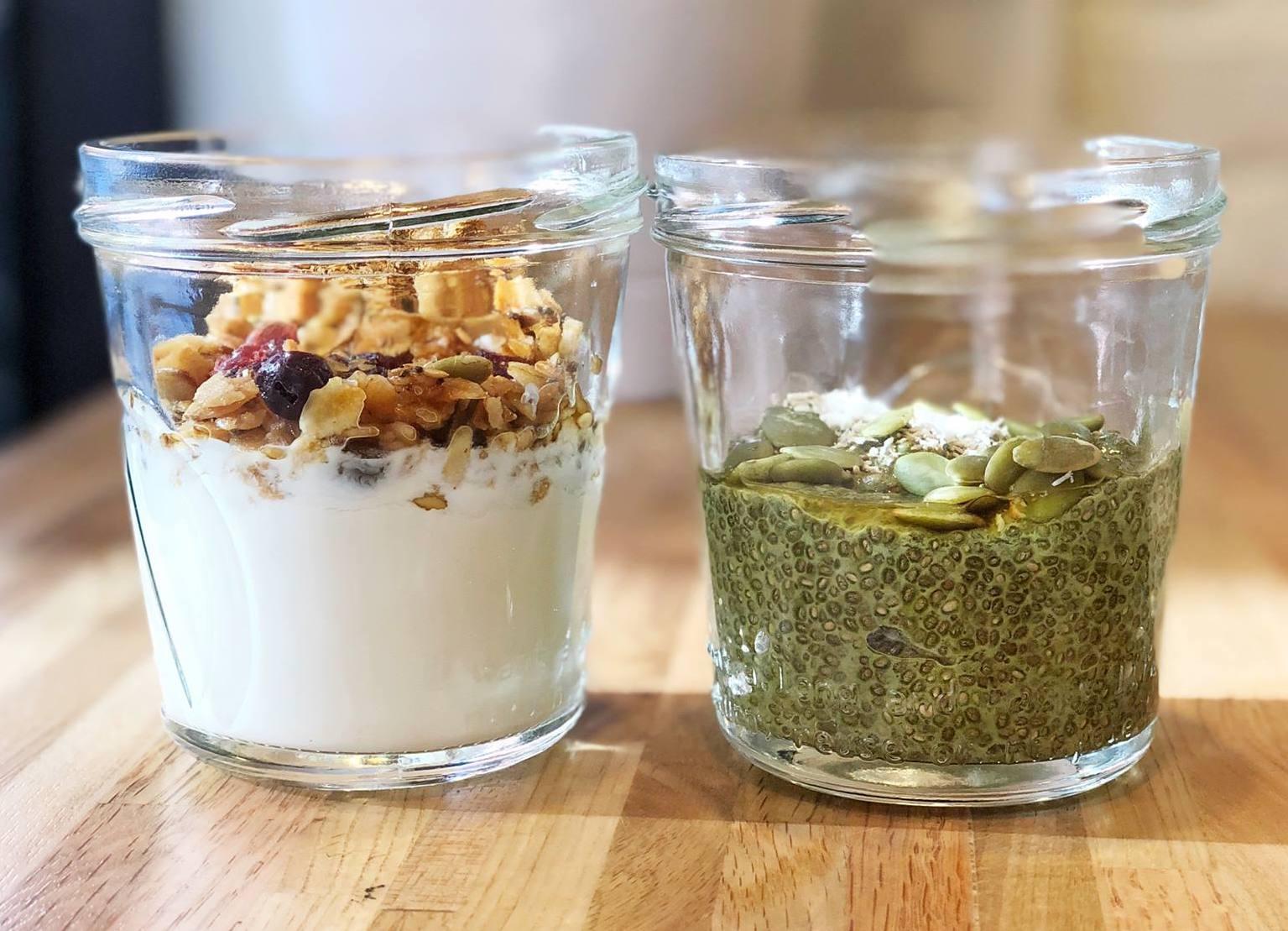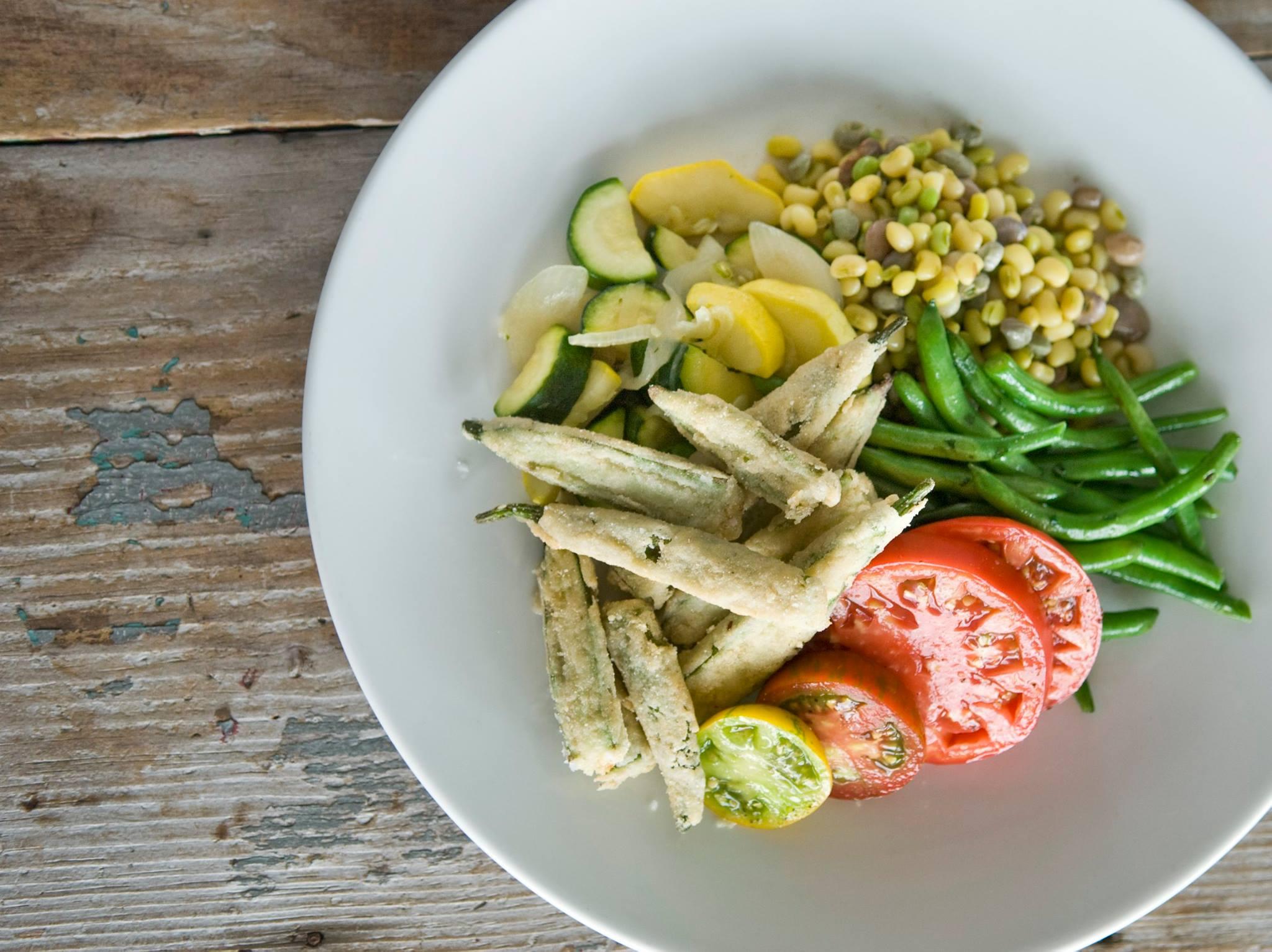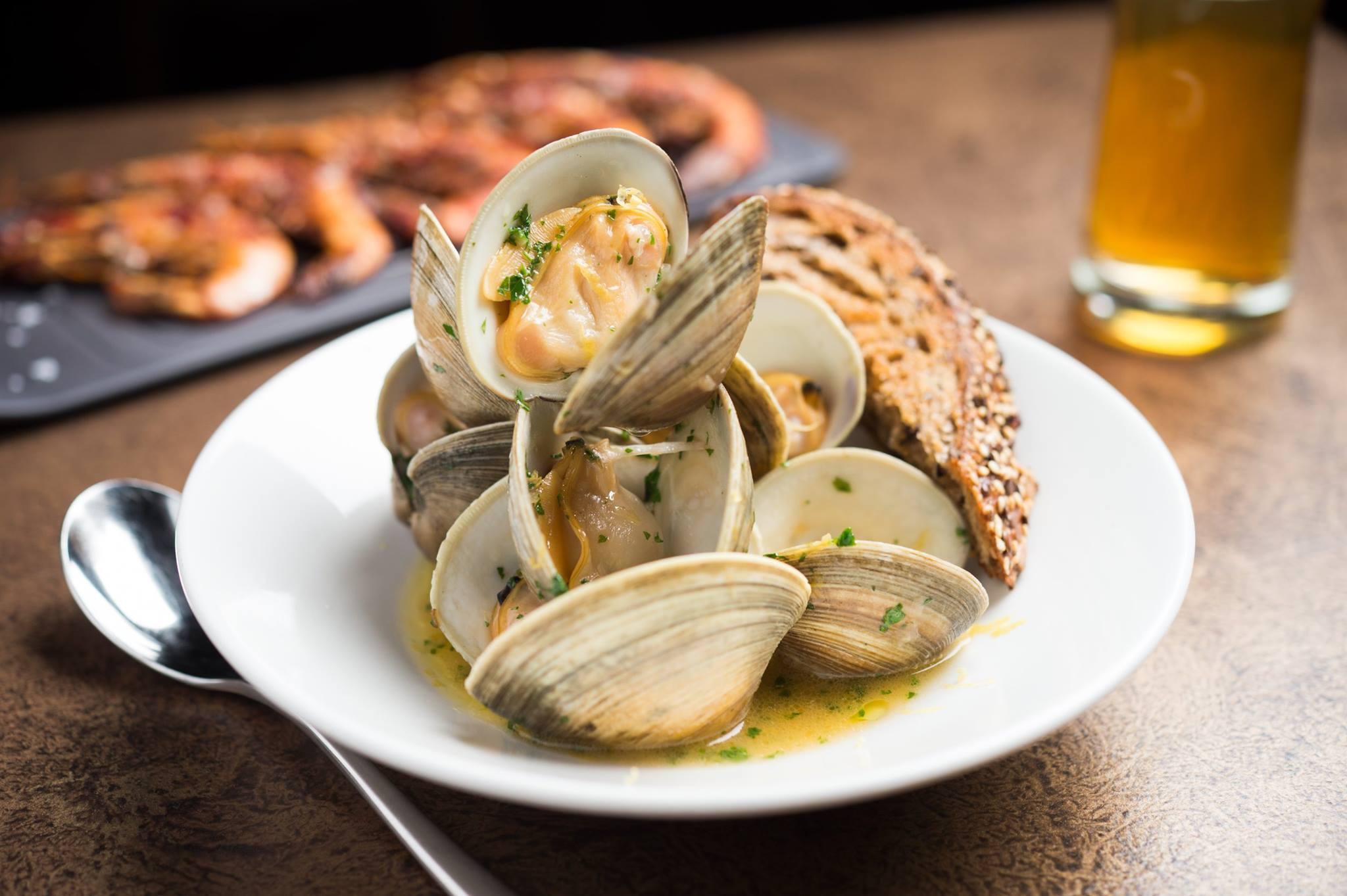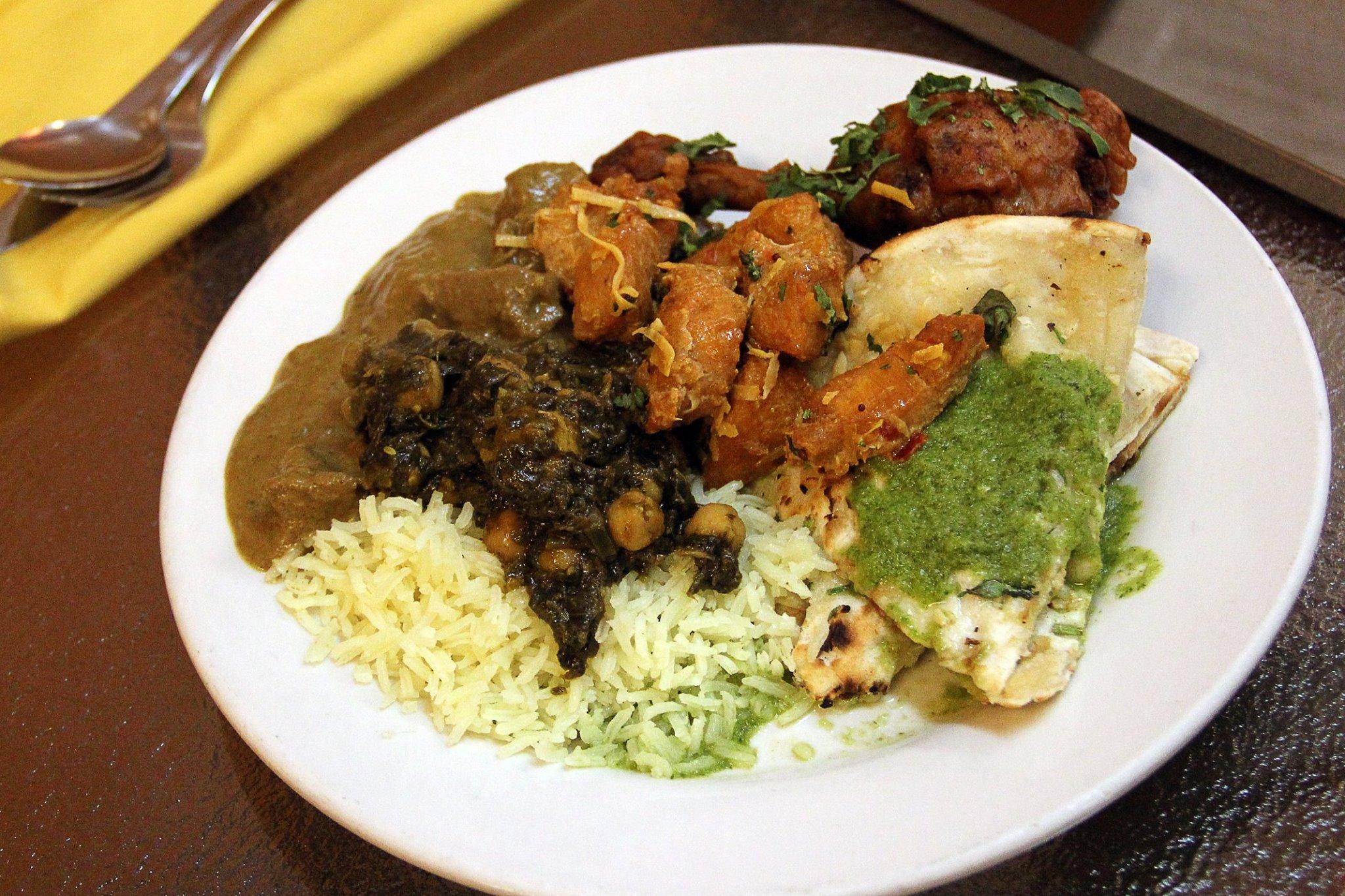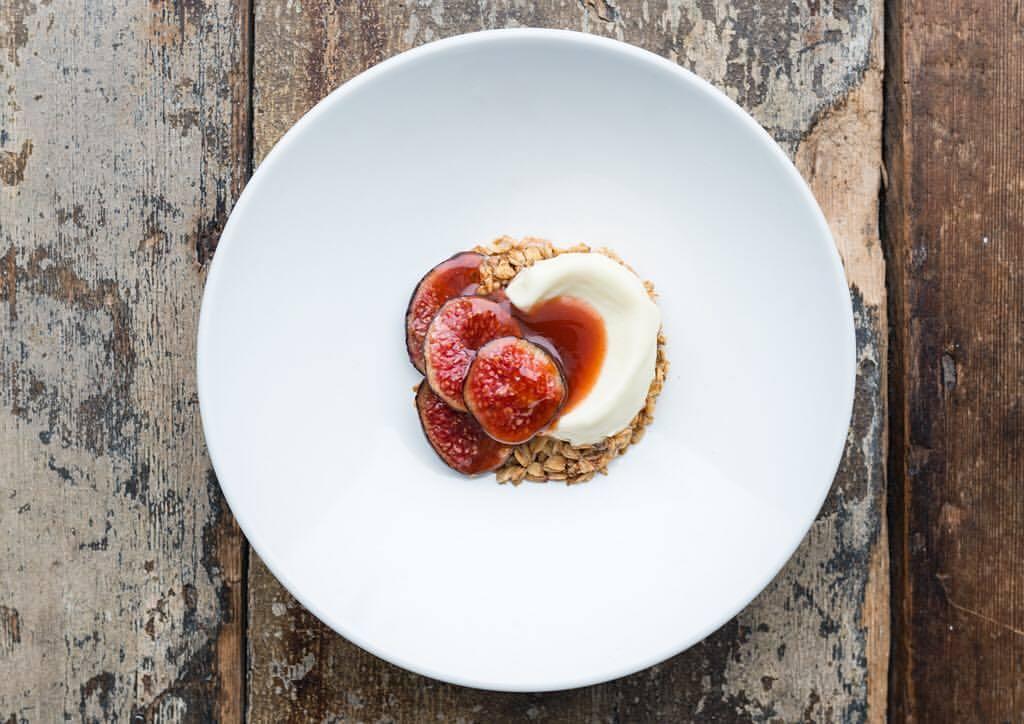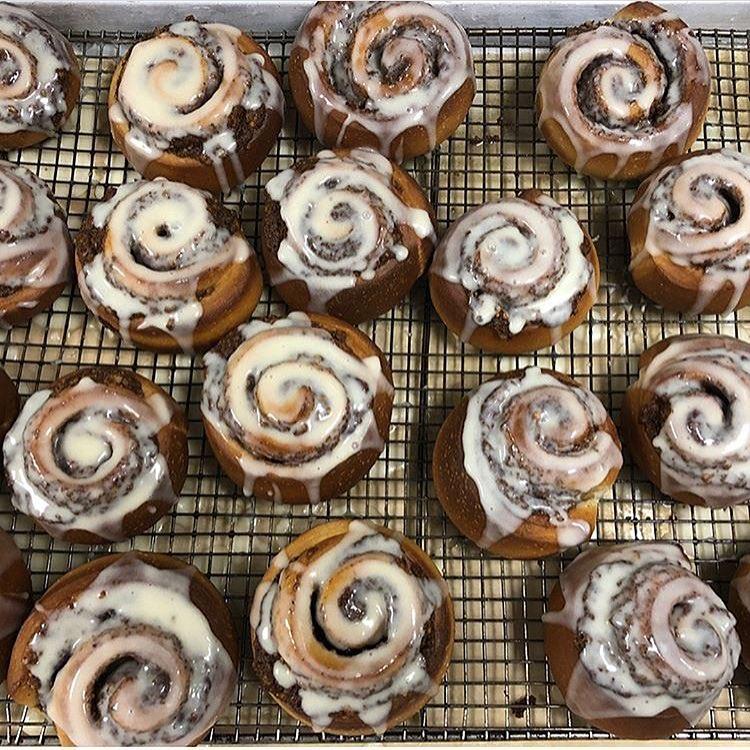9 Chefs Explain How They're Reducing Waste In Their Restaurants
These cooks are using compost, creative packaging, and inventive recipes to make their restaurants less wasteful.
Updated May 31 2019, 11:25 a.m. ET
The restaurant industry by nature generates tons of trash. There's the food diners don't finish, and the food scraps that never make it into their dishes. There's used cooking oil, all the packaging ingredients arrive in, and so many napkins, straws, and disposable cutlery.
So how do we improve kitchens that are practically designed to pump out garbage? Sustainable chefs are trying to answer that question with a number of imaginative fixes. We asked nine chefs to explain over email, in their own words, how they're reducing waste, one compost heap at a time.
Clark Barlowe
Heirloom in Charlotte, North Carolina
"At Heirloom, sustainability is at our core, from business ownership, to providing a quality life for our employees we work hard to be sustainable in all areas of our operation, especially when it comes to reducing food waste. One of the ways I feel we best accomplish this is through our whole vegetable utilization program. Be it through our strawberry top pesto, kohlrabi husk kombu, or smoking over bean shells, we strive to use every bit of every ingredient that comes through our kitchen. This program allows us to keep food cost low and profits up, drives creativity among our staff, and encourages our customers to experiment with ingredients they may not often come across often, it also allows us to honor our farmers by utilizing every bit of their harvest."
Dalia Kohen
The Coup in Calgary, Canada
"[Co-owner Tabitha Archer and I] have run The Coup for 13 years with strong values, right from the beginning. It is simple to do, as we both live by the same principals in our personal lives, and so it naturally was incorporated into the business. We wanted to open a restaurant as a demonstration to Calgarians that it is easy to care for the environment, while operating a business that typically produces a large amount of waste.
We are conscious about all that we do, from supporting local, whole, and organic foods, replanting trees to offset our paper waste through Tree Canada, offsetting our power usage by paying into Bullfrog Power to bring more windmills to the area, recycling and composting everything that can be, using BPA and phenol-free-vitamin C transfer paper for our [receipts], using metal and compostable straws, purchasing with minimal packaging, decorating the space in re-purposed and refinished furnishings like old school chairs, a compressed paper countertop, and a repurposed wood patio.
We have received level 3 LEAF certification due to our efforts, and they come in annually to re-inspect and ensure that we are true to our words.
We love what we do and go to bed feeling that the choices that we make everyday have a small impact for the better. Every day has new lessons for the staff, management, and owners. We are constantly learning how to improve and love taking the time to figure it out. We take trips to local farms, do foraging excursions, and have a garden that we use for nightly features in spring and summer months."
Luka Balac
Nolla in Helsinki, Finland
"The idea behind Nolla started from frustration over seeing how products are treated in the kitchens, as well how easy it is to waste unnecessary products. We have combined the best parts of past and future to successfully create our business model. In a nutshell, working straight with sustainable and biodynamic [farmers], we arrange a reusable delivery packaging the excludes single-use plastic waste. All our biowaste ends up in our in-house computer that converts bio mass to dry fertilizer in only 24 hours. We then return the compost to the [farmers] for use on the fields.
The hardest part is changing the working mindset but after only a couple of weeks, the 'new' way became a routine!"
Chloe Vichot
Ancolie in New York, New York
"After working in finance and at a desk for 10 years in New York, I was tired of all the lunch options available and the waste that came with it. I wanted to open my own store that would have reusable packaging, super healthy and hearty meals, and a very strong sustainable component. The glass jars were a perfect vehicle for my food: good looking, proportioned, and offering a great experience. When you eat out of glass, it makes you want to take your time and unwind, which I feel is something lacking today when you eat at your desk while still working. And of course, they are reusable! Right now, 30 percent of our costumers bring their jars back.
We also give our extra jars, croissants, and bread before they could go bad to the interns from a music studio next door or to the instructors of gyms in the street. We create recipes aiming to use 100 percent of each ingredient, including vegetable or fruit peels and chicken skins. For example, we reuse the skins from the apples of our apple sauce to make a delicious and healthy snack that we call apple crisp.
We compost all of the scraps we cannot use. It goes in a community garden in the East Village and is collected by bike twice a week. When we send our trash out three times a week, we only have a small black bag which is mainly plastic gloves. We work with local farms and order in small quantities to reduce waste at the source and also try to limit recyclables by using glass milk bottles that we send to the farm."
Steven Satterfield
Miller Union in Atlanta, Georgia
"We utilize everything we can in order to maximize our yields on our purchases, but also to discover new ways of making flavors and textures. Meat scraps get turned into charcuterie, sausages, specials, or a component in our staff’s family meal. Green stems end up in purées, sauces, chow chow, or as textures in a dish.
Fennel fronds, carrot greens, or leek tops find their way into braises, stocks, cures, or an herb sauce. We save egg whites from making pasta and turn them into frittatas with other vegetable scraps to feed the staff a delicious and healthy meal. Whey from making ricotta can be used for pickling, as the base of a sauce or in a cocktail. Fall squash seeds turn into granola or a crunchy savory topping, or can be added into a luscious broth. We are always finding new ways to incorporate scraps into our no waste philosophy."
Katie Button
"At our restaurants, there are lots of things we have done to try to reduce waste in our restaurants. First of all, we have an amazing compost program. We work with a company called Danny's Dumpster, who picks up our compost every day. We also work with Blue Ridge Biofuels, who takes our used fryer oil and recycles it into biofuel. And then we have our management team at both restaurants organizing a program for recyclables and things that are more difficult to recycle. We save and collect clean plastic bags and take those to the separate drop off point, we do the same with batteries and light bulbs. We're trying to reduce as much from the list of things that might go to the landfill as absolutely possible.
For food, we get creative with menu items and dishes. We make a vegetable paella stock at Cúrate made solely of ends and scraps of vegetables that we roast and turn into a delicious stock. In both restaurants, we cross utilize beef and lamb scraps, making sausages and other menu items for the restaurants.
We try to look at all the waste we are producing and really push menu creativity to utilize a product that is ending up in the trash. We roast shrimp shells, grind them into a powder, and fold them into mayonnaise for a delicious shrimp-forward mayo for a fried calamari sandwich."
Ruhel Islam
Gandhi Mahal in Minneapolis, Minnesota
"Being from a third world country, I know how climate change affects communities like mine back home in Bangladesh firsthand. Coming to the U.S., I already valued things like zero waste and sustainability practices that lessen our impact on the environment. When we started exploring how to integrate zero waste at Gandhi Mahal, we reached out to organizations in our community to collaborate.
By partnering with Eureka Recycling, we developed a zero waste system for the whole restaurant. We purchased new waste bins, started buying only certified compostable to-go containers, cutlery, and straws. We also started recycling our cooking oil to have it turned into biodiesel! We're now working to make sure our catering considers zero waste in the containers we pack food in, so we can offer zero waste catering."
Douglas McMaster
Silo in Brighton, England
“Silo was conceived from a desire to innovate the food industry whilst demonstrating respect: respect for the environment, respect for the way our food is generated, and respect for the nourishment given to our bodies. This means that we create everything from its whole form cutting out food miles and over-processing, while preserving nutrients and the integrity of the ingredients in the process. By creating everything on site from its wholest form, we can capture real food, and real food tastes better.”
Christina Lecki
Reynard in Brooklyn, New York
“At Reynard, I oversaw an overhaul of the restaurant’s kitchen to create a new hearth, which has become the focus of my menu, allowing for a 24-hour cooking schedule that has led to a more sustainable kitchen. We let veggies sit in the hearth overnight after we’ve put out the coals – even though the fires out, the heat stays trapped and helps to cook the items slowly, allowing them to develop layers of intense, beautiful flavor. The 24-hour cooking schedule gives us the opportunity to use free, natural energy that otherwise would’ve been wasted. We currently working to make Reynard 100 percent sustainable, but it’s definitely a work in progress. We are currently at 0 percent animal waste in our restaurant, greatly in part to our in house butcher. Scraps are an enormous part of our day-to-day cooking – we use bones for our house bone broth, we take veggie trimmings and make powders to flavor soups and meats. I’ve been creating natural dyes from our onion skins, chard stems, carrot peelings, and beets, and fermenting veg scraps for salads.
I think one thing that tends to get overlooked in kitchens is water waste. Running things through a dishwasher when it’s not completely full, or just running a lot of water to wash veggies or greens is something I think everyone can be more mindful of. We don’t even realize we’re doing it, and it’s a hard habit to break, but I think if everyone was just a bit more conscientious we could save a ton of water. Another thing that tends to get over looked: plastic wrap and parchment paper abuse! I think restaurants can train staff to more efficiently wrap leftovers, and also to cut parchment down to the right size for the job, or to save leftover pieces for other items rather than simply throw it away. I’ve noticed that most cooks coming out of school have no idea how to properly wrap and store food – that is super inefficient and can lead to being more wasteful. I try to spend a fair amount of time training people to be more mindful of this sort of avoidable waste.”
